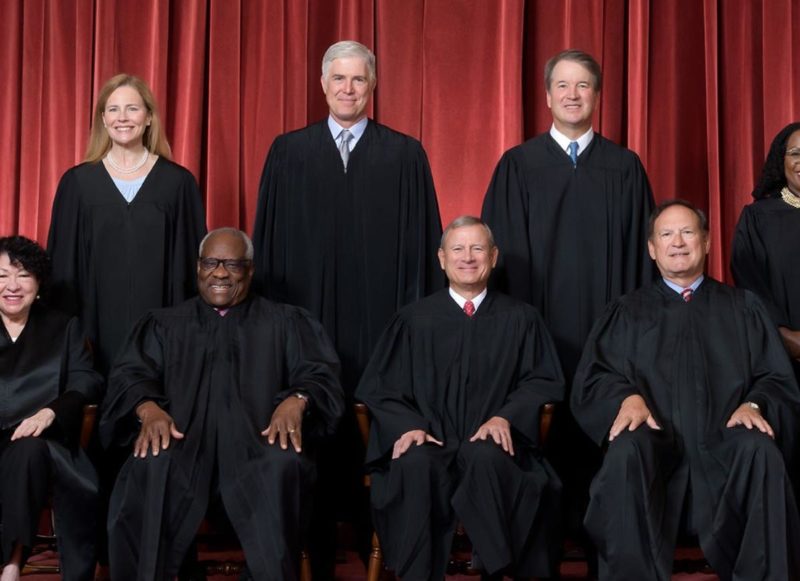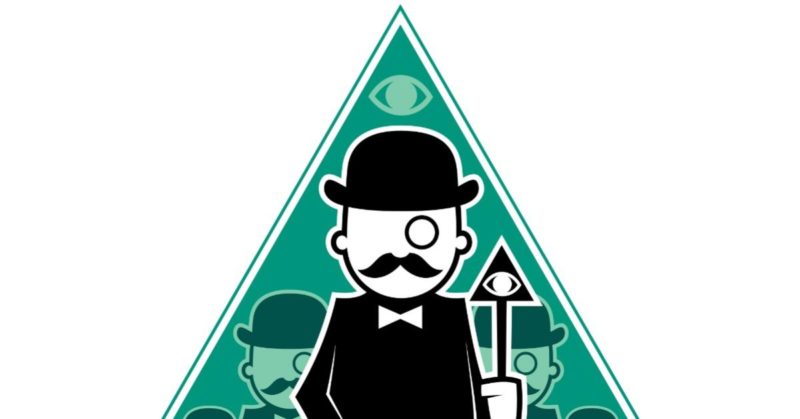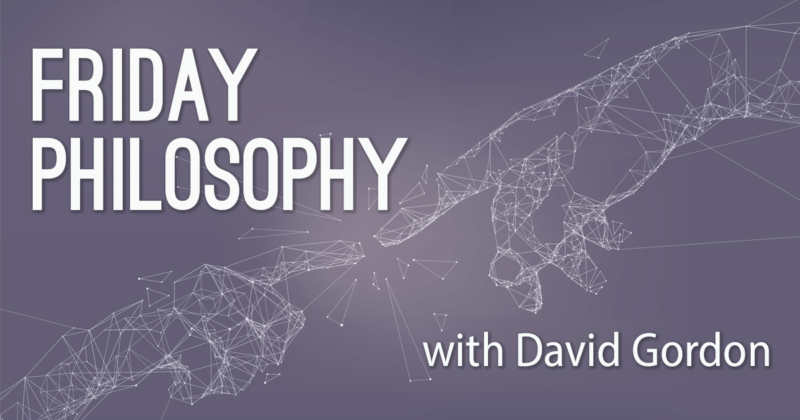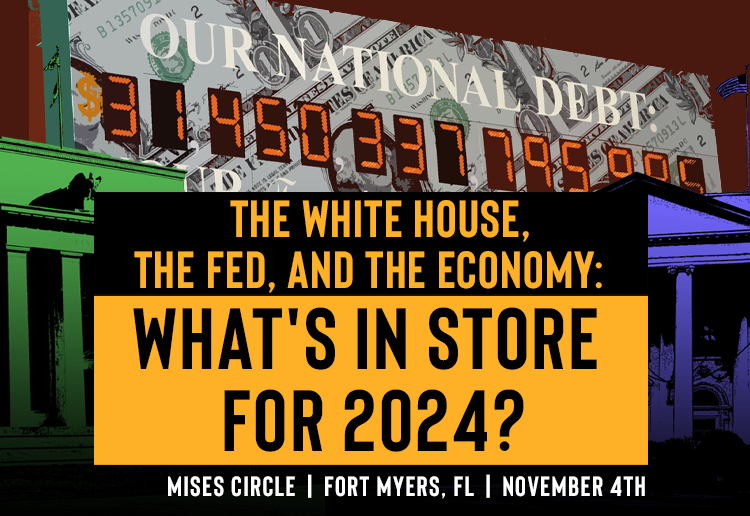Category Archive: 6b.) Mises.org
How Should We Regulate the Sun (Since Our Government Regulates Nearly Everything Else)?
When we think of “solar power,” we picture a field or a roof full of glass panels churning out electricity. However, this is just a more recent development in channeling the sun’s energy. Most histories of solar power will begin with stories regarding the use of magnifying glasses and mirrors to make fire. From the first to fourth centuries, the Romans began including large south-facing windows in their famous bathhouses, optimizing the heat energy...
Read More »
Read More »
The Affirmative-Action Ruling Strengthens Vast Federal “Anti-Discrimination” Powers
The U.S. Supreme Court on Thursday rejected race-based admissions in higher education at Harvard University and the University of North Carolina at Chapel Hill (UNC). The ruling likely calls into question the legality of most race-based college admissions policies, especially at elite colleges.
In the ruling (Students for Fair Admissions v. Harvard) a majority of the justices ruled that the use of racial preferences in the admissions process at the...
Read More »
Read More »
The Mystery of the Inverted Yield Curve
In this week's episode, Mark looks back at the history of the Inverted Yield Curve. While many observers have now dismissed the significance of the yield curve inversion in 2022—and no recession, yet—Mark shows that the history of the IYC may back a completely opposite interpretation.
Be sure to follow Minor Issues at Mises.org/MinorIssues.
Read More »
Read More »
Unraveling the Fallacy of Natural Monopolies
Most cartels and trusts would never have been set up had not the governments created the necessary conditions by protectionist measures. Manufacturing and commercial monopolies owe their origin not to a tendency immanent in capitalist economy but to governmental interventionist policy directed against free trade and laisser-faire.
—Ludwig von Mises, Socialism
The concept of natural monopolies has often intrigued economists and policymakers, serving...
Read More »
Read More »
Why the Official Data Shows There’s No Recession
Allow me to explain why we have not seen a recession yet despite the collapse in base money supply. We are witnessing the stealth nationalization of the economy. What does this mean?
The entire burden of the monetary collapse and rate hikes is falling on the shoulders of families and small businesses, while large corporations and governments are virtually unaffected.
Thus, when an agent like the state, which weighs 40 to 60 percent of GDP in most...
Read More »
Read More »
Declaring Independence from the Parasite Caste
July 4 is approaching, and many Americans are excited to celebrate their so-called independence. Why? How will this July 4 be any different from that of 2020? Haven’t the past three years revealed that Americans not only take liberty for granted but readily reject it? Is it not the least bit curious that some, if not most, of those who’ll be setting off fireworks also begged to be locked down and masked? Yes, the frauds that are “public health” and...
Read More »
Read More »
The Impact of Falling M2 on Prices and Jobs
The Mises Institute's Executive Editor Ryan McMaken joins Bob to discuss his latest article, in which Ryan spells out the state of the M2 money supply and possible implications for consumer prices and an impending recession.
Ryan's Mises.org article on M2: Mises.org/HAP402a
Ryan's QJAE article on the inverted yield curve: Mises.org/HAP402b
The Impact of Falling M2 on Prices and Jobs
Video of The Impact of...
Read More »
Read More »
A Peaceful International Order Needs Free Markets
The Ukraine war raises issues of the legitimacy and usefulness of the “rules-based” international order (RBO) that supposedly governs international relations. The United States and the North Atlantic Treaty Organization (NATO) have strongly condemned Russia’s invasion of Ukraine and its violation of international law and rules, and the US is also concerned about the economic and military rise of China and its alleged intentions to reshape the RBO....
Read More »
Read More »
Fossil Fuels Enable Us to Better Fight Fires and Other Environmental Disasters
The latest round of wildfires in Canada has brought out the usual statist demands that we ban fossil fuels, but in the real world fossil fuels protect people from climate-related disasters.
Original Article: "Fossil Fuels Enable Us to Better Fight Fires and Other Environmental Disasters"
Read More »
Read More »
Help Make MU 2023 the Best Ever
When I opened the first Mises University, I could only dream about how many students would participate, how many classes would be taught, and how many lives would be changed for the better. Now as we plan the thirty ninth event, we need your help.
It was obvious students were not learning real economics and were even being taught lies in the classroom. Mises and Rothbard were being ignored for Marx and Keynes. This had to change.
Thanks to Mises...
Read More »
Read More »
The Problem with Belloc’s Distributist Economy
The Political Economy of Distributism: Property, Liberty, and the Common Goodby Alexander William SalterCatholic University of America Press, 2023; xiii + 238 pp.
Distributism attracted considerable attention during the 1920s and ’30s among people who wished to apply Catholic social teaching to the modern capitalist economy, and it has recently had a revival. The appearance of The Political Economy of Distributism is particularly welcome for those...
Read More »
Read More »
Leviathan Is on the Menu
The State of California, unable to unionize fast food workers, now is trying to create workers councils that will set labor policies for fast food restaurants.
This will not end well.Original Article: "Leviathan Is on the Menu"
Read More »
Read More »
Will Jamaica Embrace True Economic Reform or Just More Socialism?
Jamaica is at a critical juncture in its history, and the world is watching. Long seen as a powerhouse in the developing world, Jamaica is on track to become a republic. Like in the 1950s and ’60s, decolonization is brewing, so Britain’s ex-colonies want to sever ties with their former overlord. Jamaica has therefore established a constitutional reform committee to fast-track the process of becoming a republic.
As a political process,...
Read More »
Read More »
The FTC Should Answer Its Call of Duty to Gamers
The Federal Trade Commission is heavily scrutinizing the proposed merger between Microsoft and Activism. Why? Sony is against it, demonstrating that antitrust law is about protecting favored producers, not consumers.
Original Article: "The FTC Should Answer Its Call of Duty to Gamers"
Read More »
Read More »
The White House, the Fed, and the Economy: Mises Circle in Ft. Myers, FL
Every day, Americans feels the costs of the political capture of the economy. Inflation, taxes, and regulatory costs hit our paychecks and savings. The regulatory capture of medical industries, food and energy production, and the various instruments of Big Tech empower the regime with new tools to promote their latest ideological cause. The ever-growing burden of government debt has become a crisis without any political will to address it.
This...
Read More »
Read More »
Tampa Group Declares Independence from the Dollar
On this episode of Good Money, Tho Bishop is joined by Wesley Schlemmer, president and co-founder of Bitcoin Bay. Wesley discusses the benefits of creating local professional networks around common values and how Bitcoin Bay is helping Tampa residents convert Bitcoin into real goods and services, including locally raised beef.
Learn more about Bitcoin Bay at Bitcoinbay.live.
Good Money listeners can order a special $5 book bundle that...
Read More »
Read More »
Much of the World’s Oil Is Owned by Governments. There’s No Good Reason for This.
It is as if the average human assumes that a coercive governance must be established or assigned despite the fact that such a government is often not very efficient or even involved in the outcomes we ultimately want, peace and prosperity.
—Walter Block and Stefan Sløk-Madsen, “Who Should Own the North Pole?“
In many oil-producing countries, governments own the resource (namely, oil) that they’re extracting. Whether this is a favorable state of...
Read More »
Read More »
How US States Could Pave the Way for Currency Competition
The US dollar has been the world reserve currency since 1944. At the Bretton Woods Conference, the dollar was pegged to gold and every other currency was pegged to the dollar. The fixed exchange rate system that emerged provided a stable environment for international trade and investment, as all countries had a currency value that was, directly or indirectly, tied to a fixed gold price.
The system began to unravel in the 1970s due to economic...
Read More »
Read More »
Disarm All Federal Agents
There are now more armed civilian federal agents than there are US Marines. These well-funded armies of federal enforcers from the alphabet agencies are there to be used against US citizens at the whims of federal policymakers. Every last one of them should be disarmed.
New Radio Rothbard mugs are now available at the Mises Store. Get yours at Mises.org/RothMug
PROMO CODE: RothPod for 20% off
Read More »
Read More »
The Trouble with the Constitution and the “Social Contract”
Politics is of its very nature biased in favor of intervention and planning. Even in its “minarchist” or “night-watchman” version, politics is based at root on the idea that some decisions must be made coercively and imposed on unwilling minorities — or even majorities, as the case may be. This is contrary to the principle we observe in private life every day: the consent of both parties is necessary for a transaction to take place.
The state never...
Read More »
Read More »






























